Adam Robinson Shows 5 Ways To Create A Seamless Indoor / Outdoor Design
Caesarstone
One of the first things I look at when starting a new garden design project is connecting the garden to the homes’ architecture and interiors in the most harmonious way imaginable.
“I believe the landscape designer’s role is to extract the mood and character of the architecture and interiors and translate it into the garden.”
Adam Robinson
Gardens are no longer a mere afterthought. The way the interior and exterior of a home speak to each other is crucial, so ideally, we need to consider how the two spaces work together to suit our lifestyle. To put it simply, we want to amplify our enjoyment of life at home.
My favourite projects are those I collaborate with the Architects and Interior Designers on from the start, so we create a consistent, harmonious design.
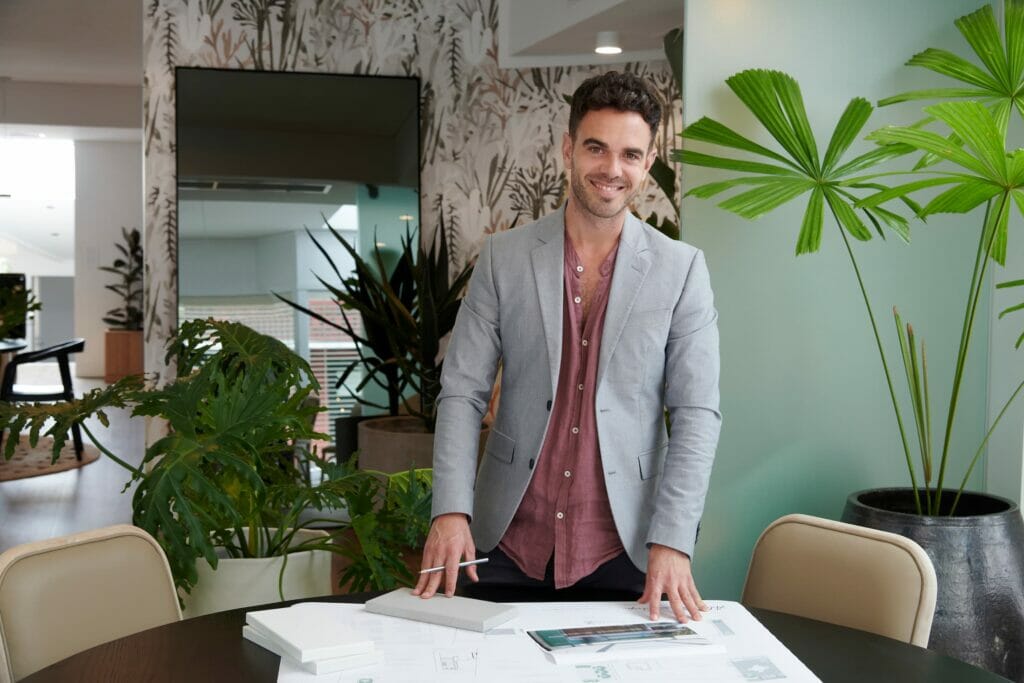
“Let the sunshine in.”
Adam Robinson
Today, living spaces within the home should expand outwardly in an open concept floorplan, especially those on the building’s outer extremities. I like to achieve this with glass walls that open onto spacious terraces for a calming connection to the outside world. When the boundary between the inside and outside is glazing, it’s easy to achieve a seamless flow. For me, the best home architecture prioritises the integration of the site, structure and spatial flow and its relationship to the land – no matter how large or small the building.
Oversize doorways, windows and skylights open up homes to natural light and fresh air, making a world of difference to our health and wellbeing. The more access we have to these natural elements, the better we feel about our life and home. Aside from the beauty, the therapeutic benefits of having homes connected to the outdoors is well understood and centres around the alfresco, resort-style living aesthetic.
Of course, it’s not just about having large windows and doors opening onto your garden. There are many ways to dissolve the threshold between inside and outside.
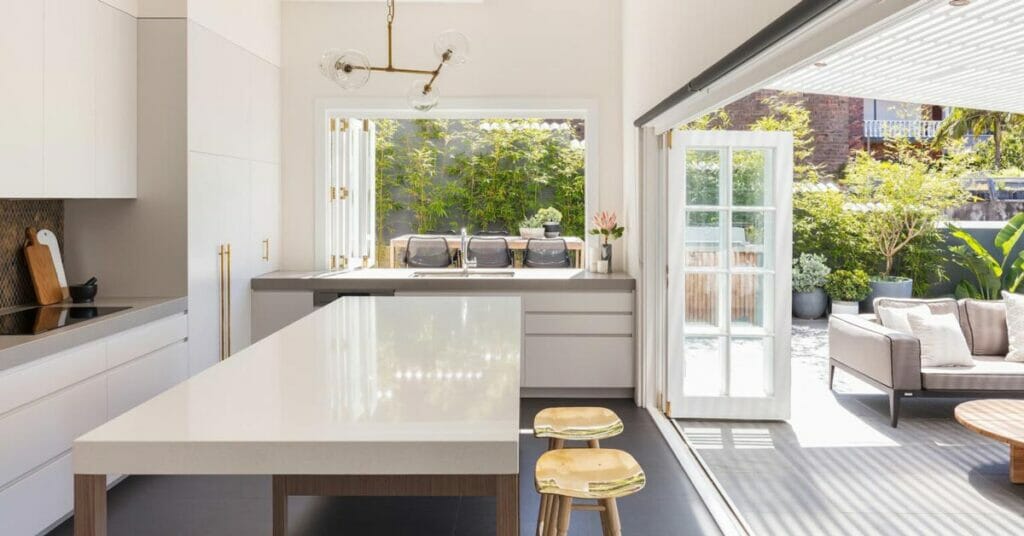
“Look at the materiality of the space as one whole.”
Adam Robinson
Using the same or similar materials outside that I’ve used inside creates a strong connection. It creates a beautiful seamless flow. Using flooring and benchtops designed to run from inside to outside ensures they can withstand the outdoor elements whilst making our home feel balanced.
Whilst we may worry about using similar materials inside and out, the differences can be ever so subtle, such as the slip rating for the flooring or UV resistance for the outdoor surfaces. Our naked eye cannot see these subtle differences, so it all blends harmoniously with the right pairings.
I find the more natural and earthy the materials are, the more sensual and tactile our spaces feel. Using a variety of textures stimulates the senses. I love to create outdoor living spaces that are as comfortable and luxurious as any interior room. The key to success is choosing the right blend of materials.
For instance, if you have Caesarstone kitchen benchtops, think about continuing the surface into a barbecue or kitchen setting outdoors with Caesarstone’s new Outdoor Collection.
Alternatively, I like to bring the outdoors in. If you have a stylish paving pattern outside, why not bring it into your home to give your home that delicious outdoor alfresco feel.
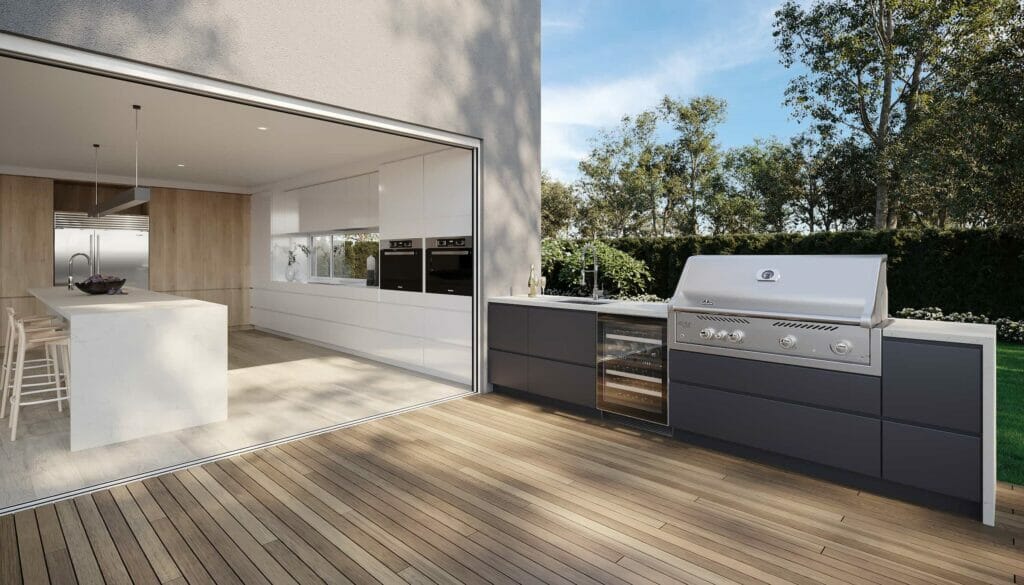
“Colour can be a powerful conduit to connect spaces.”
Adam Robinson
Designing the interior and exterior as one space improves the flow, especially when they connect through colour. I like to visually join the areas by painting garden feature walls and boundary fences in similar colour shades to the interiors. Another simple method is to use the same or similar colours on furnishings, pots, tiles and other decorative surfaces. Interior and exterior colours don’t have to be identical; you can still create a smooth transition from one space to another with similar colour tones.
Using unrelated colours inside and out creates a disjointed transition. So, consistency is crucial for a polished, holistic feel. I like to combine different shades of one neutral colour with a splash of colour that I pick from a vibrant interior colour element. It brings fun, energy and personality to my outdoor room designs.
When materials don’t work together inside and out, I tie the look together tonally with clever use of colour; for example, I might use a blonde timber floor inside, which ties together nicely with creamy travertine pavers outside.
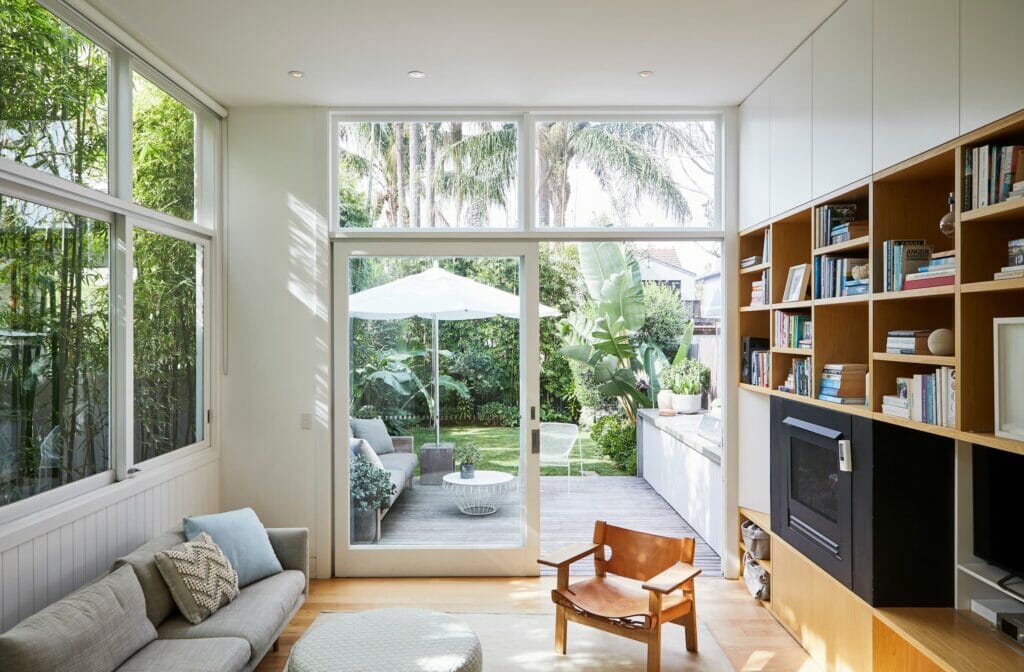
“Outdoor living spaces should be as comfortable and luxurious as the interior.”
Adam Robinson
I believe luxurious and comfortable outdoor spaces as comfortable as our interior rooms create a wonderful alfresco atmosphere for the entire home. To achieve this, try recreating liveable areas outside you can use to lounge, cook, dine, entertain and relax.
Exposed outdoor spaces can still be intimate settings with shade structures, screens, cocooning furniture, and all the creature comforts you have indoors. Rugs underfoot, soft decorative cushions to recline on, or a beautiful pendant light that emits warm ambient light above the outdoor dining table helps create an enticing feel.
I always try to create the ideal balance between aesthetics and comfort when designing outside, as I would for an interior space. I like to mix modern and vintage pieces to add interest inside. For outdoors, try mixing upholstered ”interior” style furniture and traditional outdoor furniture.
For instance, contrast a comfy, upholstered sofa and cushions with a pair of butterfly chairs to create a stylish conversation setting indoors. For outside, a low-to-the-ground setting with four luxuriously upholstered armchairs around a tile-top coffee table makes a wonderfully relaxed feel for outdoor entertaining.
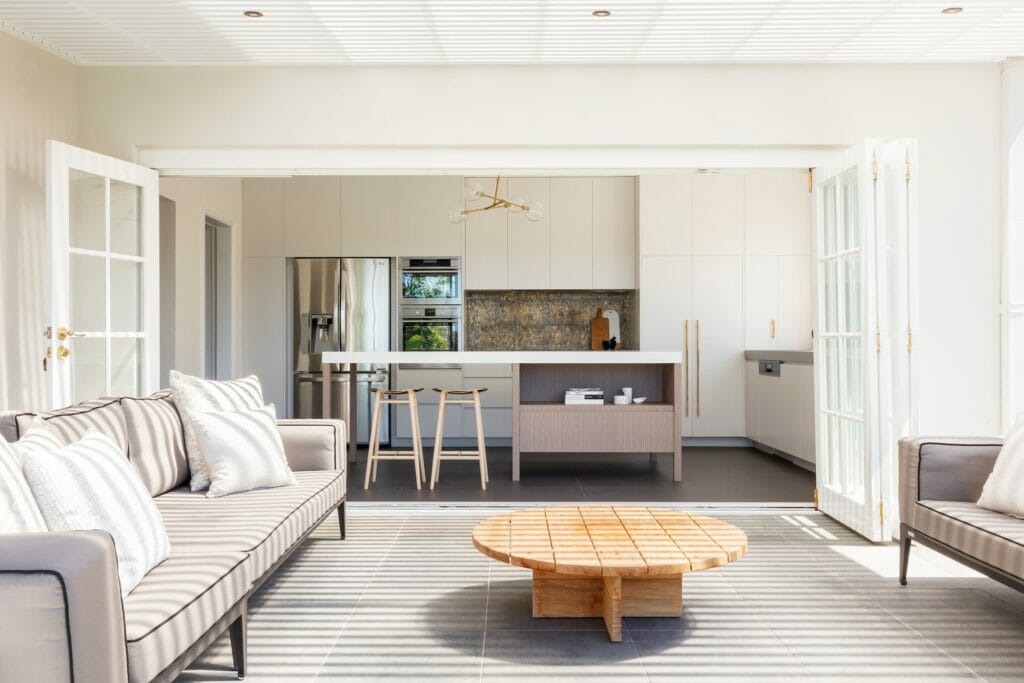
I like to embrace a simple but super important design philosophy, particularly now, ”Biophilic Design”. Biophilic design improves our connection to nature to benefit our health and wellbeing.
Biophilic design nourishes all of our senses with the healthy wholesomeness and purity of nature. A simple way to achieve this is by bringing elements of nature indoors.
There are so many types of plants that thrive indoors. Whether you grow lush foliage plants or simply have colourful floral arrangements, or botanical sculptural elements in the house, they are all-natural anchors that bring the beauty, energy, and vitality of the outdoors inside.
Fabrics and other soft furnishings decorated with botanical patterns, textures or motifs can amplify and heighten our connection to the outdoors.
Similarly, bringing our favourite creature comforts out to gardens extends our lifestyle to the outdoors. Using beautiful resort-style ambient lighting, furnishings, and landscaped functional spaces helps reinforce our connection to nature.
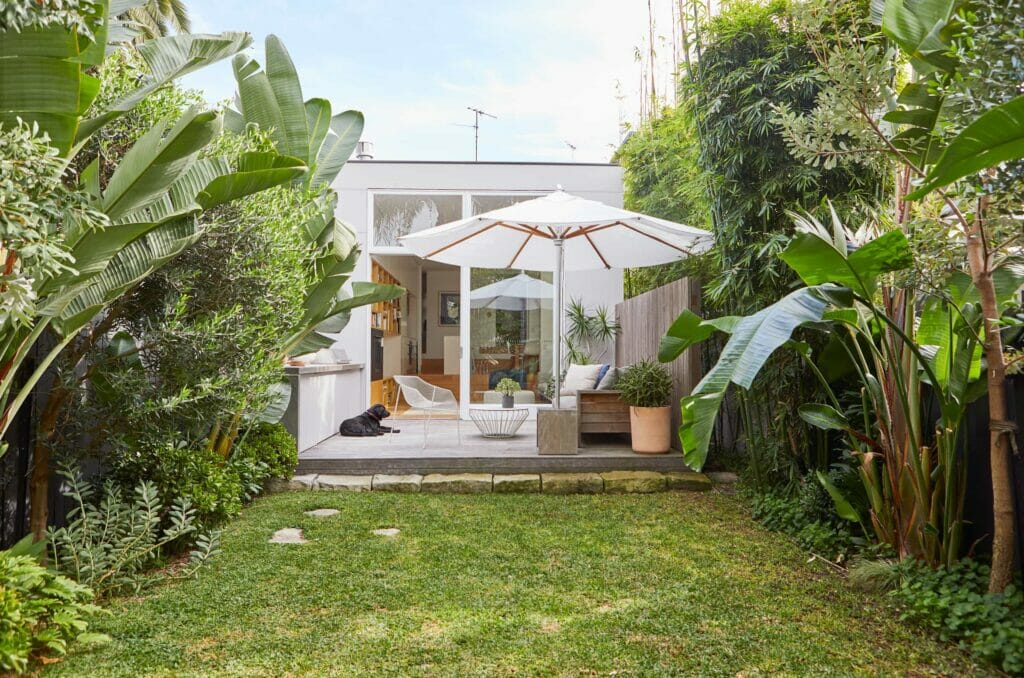
{{ subtitle }}
{{ i.desc }}
{{ subtitle }}
{{ subtitle }}
No worries! We will send you an email to reset your password
If '{{this.email}}' email address exists, we have sent an email with password reset instructions.
Please note: If the email does not show up within one hour, check your spam folder or try to reset your password again after one hour.